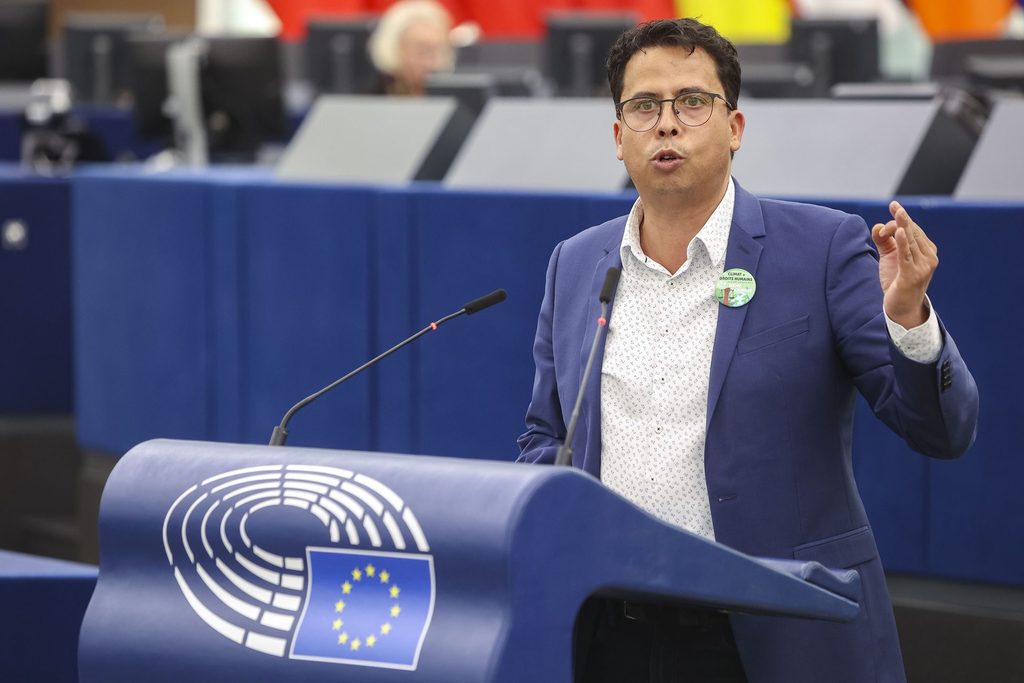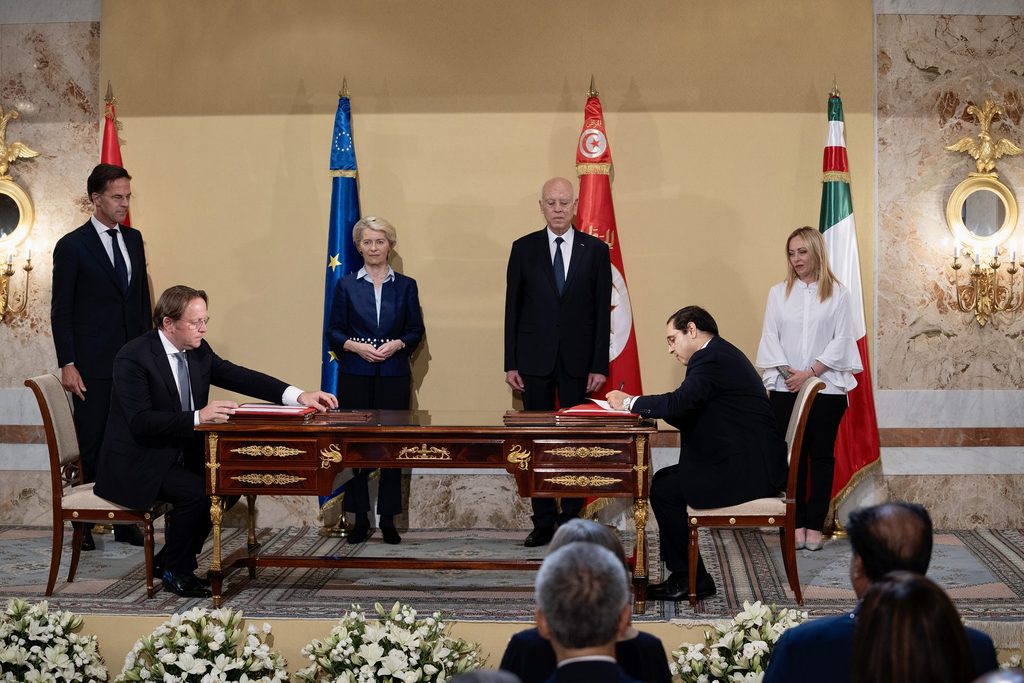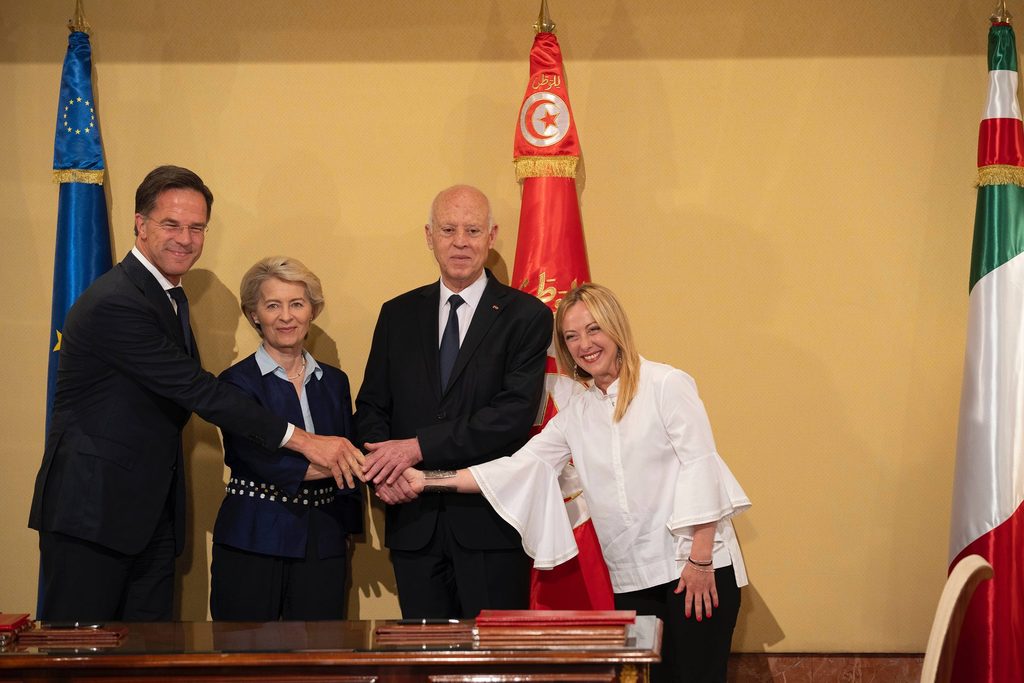Tunisia denied entry to a delegation of Members of the European Parliament (MEPs) on a fact-finding mission on Thursday, organised over concerns for the democratic and human rights backsliding in the country.
The delegation was planning a second visit to the country on 14 and 15 September, following a previous trip in April 2022. MEPs from the Parliament's Foreign Affairs Committee had previously condemned the political backsliding in Tunisia, with President Kaïs Saïed being accused of taking an authoritarian turn.
"This conduct is unprecedented since the democratic revolution in 2011," the delegation said in a statement. "We condemn the decision of the Tunisian authorities to refuse entry to the delegation of the European Parliament Foreign Affairs Committee and demand a detailed explanation."
French MEP in the delegation, Mounir Satouri (Greens/EFA), told The Brussels Times that the entry refusal was "a slap in the face to parliamentary diplomacy."
Satouri added that this is the first time since 2011 (Tunisia's democratic revolution) that it has not been possible to exchange views with the country's politicians. He also condemned Tunisia's leadership.

Mounir Satouri MEP speaking in plenary. Credit: EP Photo
"Kaïs Saïed is dividing the European Union, and the Commission and some Member States are playing into his hands. They are giving a blank cheque to his autocratic governance, through the agreement concluded this summer," MEP Satouri continued.
Another delegation member, Dietmar Köster (S&D - Germany) branded the incident an "unparalleled scandal."
Köster told The Brussels Times that the Tunisian government had previously cancelled official appointments – which included the Tunisian Prime Minister and the Minister of Foreign Affairs – because two MEPs had made critical comments towards the president in a press conference.
The delegation had decided to go ahead with the trip, before receiving a letter refusing them entry.
'Neither side of the Mediterranean'
The incident also comes amid rising tension over the controversial Tunisia-EU migration deal, which was announced during a high-level visit by Commission President Ursula von der Leyen and the prime ministers of Italy, Giorgia Meloni, and The Netherlands, Mark Rutte in July.
As part of the agreement, the EU is to pay Tunisia €105 million in exchange for stopping migrant boats and €600 million in budgetary support and strategic investments to boost the country's economy.
However, there are increasing voices, particularly in Italy, that the migration deal has proved to be a failure, with one Italian newspaper reporting that arrivals from Tunisia are up by 60% since the deal was signed. Yesterday alone, a new record was set with 6,000 migrants arriving in the island of Lampedusa, Sicily, in one day alone.

Credit: Governo Italiano
The issue was fiercely debated in the European Parliament on Wednesday, with both left and right political groups condemning the deal.
For MEP Satouri, who was present in the plenary debate, the deal will not serve the people on either side of the Mediterranean. "This Team Europe has no legitimacy. The agreement is not in the interests of Tunisians. It flouts the values that Tunisian democrats and the European Union are supposed to share."
A European Commission spokesperson told reporters on Thursday that the incident would not impact the migration deal.
Power grab
There have been growing concerns about the deal also regarding the domestic situation in the country.
Shortly after his election, Saïed seized full powers in July 2021, dissolved parliament in early 2022 and oversaw the adoption of a new draconian constitution.
The European Parliament passed a resolution in March condemning the recent attacks against freedom of expression and trade unions, which have been carried out through a number of arbitrary detentions.
President Saïed also falsely pushed far-right conspiracy theories, including false claims that sub-Saharan migrants are seeking to demographically replace Tunisians. Following his claims, these migrants were violently attacked.

